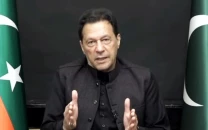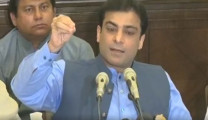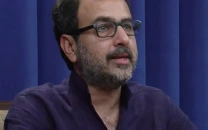Islamic Ideology Council chairman defends fatwa on VPN as un-Islamic
Fatwa on VPN has drawn criticism from the public and religious scholars alike

The chairman of Pakistan’s Islamic Ideology Council, Allama Raghib Naeemi, clarified the council’s recent ruling on virtual private networks (VPNs), declaring them un-Islamic due to their frequent misuse.
Speaking on a private TV morning show, Naeemi stated that using registered VPNs for lawful purposes is permissible but raised concerns over unregistered use for accessing immoral content.
Citing statistics from the Pakistan Telecommunication Authority (PTA), Naeemi highlighted that 'nearly 15 million attempts to access pornographic websites are made daily in Pakistan via VPN.'
He compared the issue to the misuse of loudspeakers, noting that unauthorised actions leading to immoral or harmful behaviour must be curbed under Sharia law.
The fatwa has drawn criticism from the public and religious scholars alike. Prominent cleric Maulana Tariq Jameel questioned the logic, suggesting that by this rationale, mobile phones could also be deemed more harmful.
Jamaat-e-Islami leader Hafiz Naeem ur Rehman urged the council to review its decision, warning that such rulings risk undermining the institution’s credibility.
Naeemi defended the fatwa, stating that the government has a religious obligation to prevent access to illegal and unethical material.
He emphasised that VPNs used to bypass legal restrictions on harmful content violate societal values and Sharia principles.
The debate comes amidst reports from PTA ranking Pakistan among the top countries for attempted access to explicit online material, with over 20 million such attempts daily.
Maulana Tariq Jamil condemns VPN fatwa
Renowned Islamic scholar Maulana Tariq Jamil has raised concerns over Council of Islamic Ideology (CII) decree, which declared Virtual Private Networks (VPNs) as un-Islamic (haram).
Speaking to a private channel on Sunday, the scholar questioned the rationale behind the decision, asserting that if VPNs are considered "haram," then mobile phones should also fall under the same category, as they can be used to access similar restricted content.
Warning against the broader implications, he criticised the fatwa as a "narrow-minded stance".
He further pointed out that mobile phones posed far more serious challenges due to their capacity to access harmful or inappropriate material, which could be more detrimental than VPN usage.
The scholar also noted his lack of awareness regarding the specific religious council responsible for the fatwa but reiterated his disagreement with the decision.
The debate emerged following the CII's declaration, which deemed VPNs illegal, citing concerns about their misuse to bypass internet censorship and access prohibited material.
























COMMENTS (1)
Comments are moderated and generally will be posted if they are on-topic and not abusive.
For more information, please see our Comments FAQ